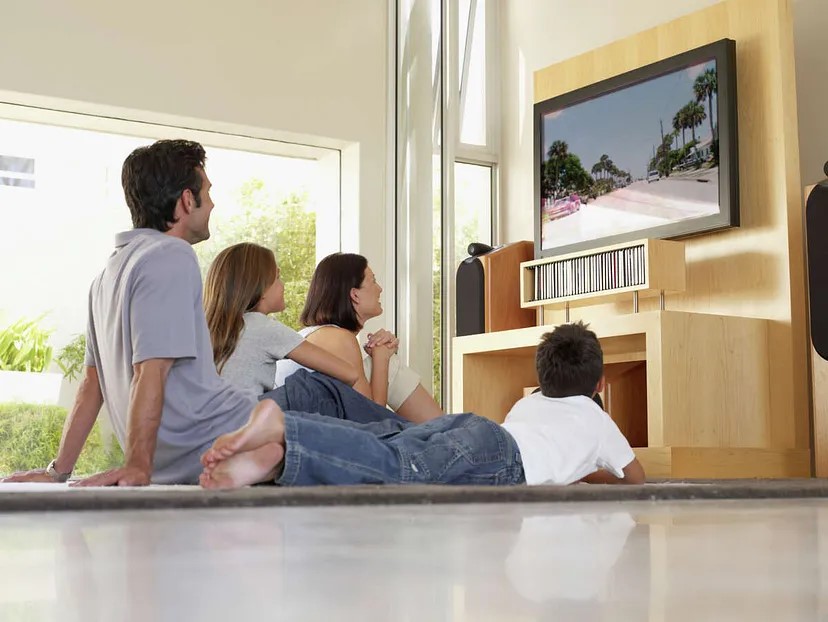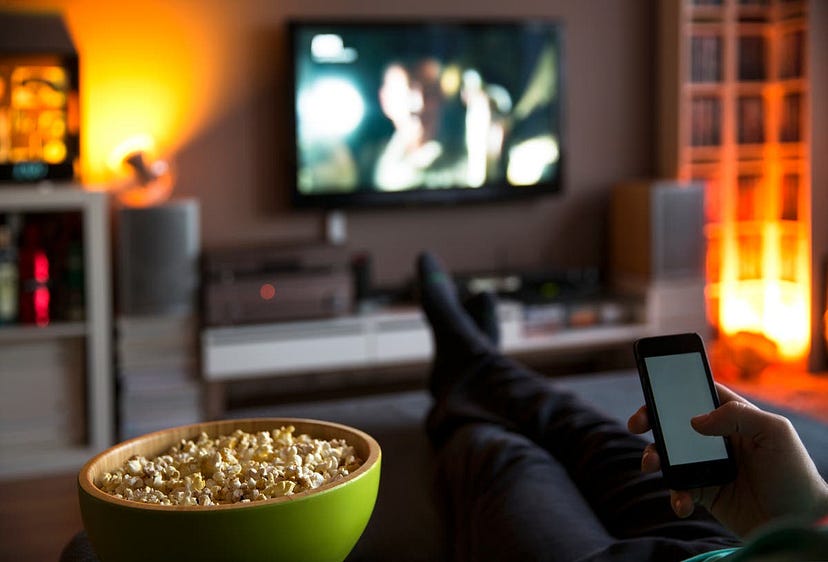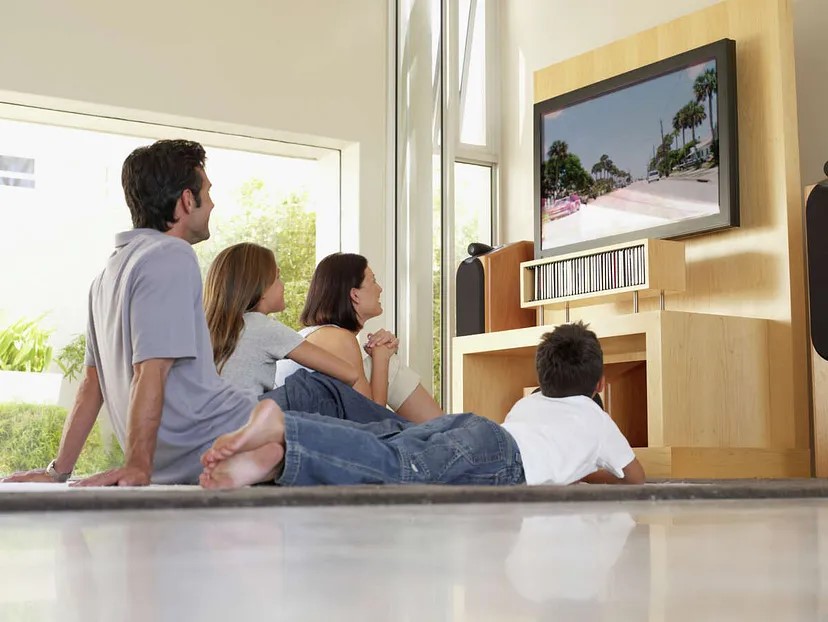
We spend a lot of time talking to you on the subject of how to maintain our physical health – plant-based diet, exercise, refraining from eating too much junk food and sugar. But keeping our minds and emotions healthy is just as crucial to our well-being. It’s important to maintain a positive outlook on life and find ways to deal with stress. Meditation, enjoying nature walks, and interacting with family and friends can help us do that. Avoiding spending too much time staring at our computers and at the television set is important in maintaining mental and emotional stability.
How much does the average American watch television? Usually a lot. CivicScience, a consumer analytics platform, tells us that 55% of Americans spend one to four hours daily watching TV, and 22% watch four or more hours every day. Many of the studies that we have looked at didn’t include streaming platforms, so the magnitude of this problem could be even more severe.
Too much television watching isn’t just limited to America, but is the same in other countries. It isn’t uncommon for people to spend the majority of their time watching television when they’re not at school or work. Streaming platforms have made binge-watching of shows commonplace, and have encouraged excessively long viewing sessions.
So what’s the problem with that?

One of the issues with television is that it is often a form of extreme escapism. Of course, there are documentaries that address real issues and highlight problems faced by people worldwide, but most of the popular content on television is fictionalized events portrayed by actors or cartoon characters. The many hours spent consuming virtual stories is time not spent building, or discovering real relationships.
To attract the most viewers, the fictionalized content portrayed on television is often very dramatic. Viewers are exposed to contrived stressful situations and violence to keep them engaged and wanting to watch more.
People come to believe that their lives are boring compared to the fiction they immerse themselves in. The real world is much more complex, offering meaningful relationships and adventures that will stir our imaginations and cause us to live life fully.

Spending too much time in front of the television is generally associated with unhealthy eating. Microwaved foods or delivered foods that are highly processed are gobbled down while watching sports or your favorite TV shows. These foods are often extremely salty and contain unhealthy fats. The sedentary lifestyle that prolonged television viewing creates means that people often don’t want to cook healthier food for themselves.
And when people are glued to the TV, the motivation to get up and exercise is minimal. Television has normalized watching others involved in physical activity while not engaging in it themselves. Sporting events gain huge television audiences, but often many of those fans are not getting quality exercise themselves.

One of our friends told us he dated a girl who was addicted to a streaming platform. All she wanted to do was to watch Netflix for hours on end. Apparently, it’s becoming common for young couples to spend a lot of their time this way, watching Netflix or other streaming services. Our friend said that their time together was always more enjoyable when they were out and about, exploring the world and getting to know each other better.
A severe addiction to streaming services may be an attempt to relieve the stresses of uncomfortable life situations, but in the end, spending all that time on Netflix or Amazon will result in a failure to deal with problems in a constructive way and only make us want to retreat even more from real life. Of course, there are people who are shut-ins and are unable to leave their homes because of physical conditions. We understand that they find comfort and entertainment in the escapism television offers.

Who benefits from burying ourselves in television for hours on end? Certainly not ourselves, our families, or our friends, but everyone involved in the making of these shows. Television puts our mind into a very passive state. In this mode, our brains are only consuming information, and not actively participating. Advertisers take advantage of this to push products onto people and influence unnecessary consumerism.
Being active, using our imagination to create things that have never existed before, and seeking out our own unique adventures are what make life worth living and keep our minds healthy and strong.
It’s easy and understandable that after a hard days’ work we just want to slump in front of the TV set and zone out for a while. But children do what their parents model, and setting an example for them regarding the rewards of living life apart from staring at the TV set will last a lifetime.



